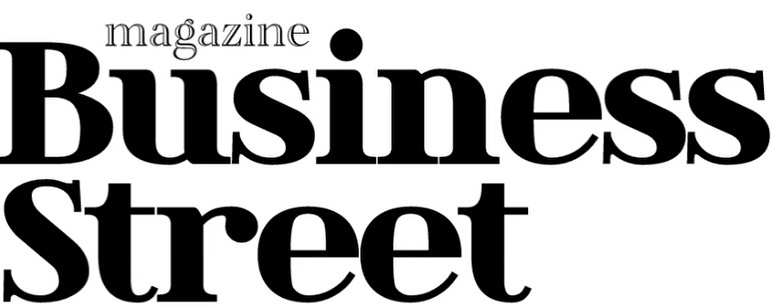Sir Richard Branson.
Sir Richard Branson is one of the most extraordinary entrepreneurial personalities of our time. With his innovative spirit, his courage to take calculated risks, and his almost playful approach to challenges, he has not only shaped existing industries but also created entirely new ones. The Virgin Group, which he founded, is an unusual blend of brand leveraging, risk diversification, and his self-staging as an anti-CEO. Comparisons can be drawn with iconic figures like Steve Jobs or Bill Gates, but the overlap is smaller than assumed because Sir Richard Branson is a »total figure«. There is certainly no blueprint for his work, but there are success factors.
Young Branson Sheds the Straitjacket of School
His exceptional entrepreneurial talent emerged early. His academic performance was not strong – Richard Branson has dyslexia, a reading and spelling disorder. So, at 16, he started his first business – a youth magazine through which he raised donations for charitable causes. From that point on, he was an entrepreneur, simply going his own way in the opposite direction – away from the straitjacket of school.
In 1970, he launched Virgin Records as a mail-order business for records. The idea arose from a gap in the market: British record stores had raised prices due to the introduction of a value-added tax. Branson bypassed this through direct sales and simultaneously exploited a legal gray area by declaring the records as exports. This landed him a hefty fine. Afterward, he discontinued direct sales and converted the business into a regular brick-and-mortar store.
His next step: He founded Manor Studios in Oxfordshire and the label »Virgin« to produce music and provide a space for musicians. In 1972, he signed the then-unknown bassist Mike Oldfield. The debut album Tubular Bells became a massive success. Branson also made deals with the Sex Pistols and the Rolling Stones, among others.
When he decided to start his next venture – Virgin Atlantic – he had to sell the record label to raise capital. This was a blow to him. He later told Reuters it felt like having to sell his children, even though the deal was very lucrative. Virgin Atlantic was a milestone in his entrepreneurial career.
»The quickest way to build an airline, in my view, was to start by leasing a single plane«, he writes on his blog. Everyone thought he was crazy. But he managed to convince Boeing to lease him a 747. He ventured into something entirely new, undeterred by doubts. Still, he hedged the risk: He negotiated the option to return the plane if the venture failed. That was about 40 years ago – and Virgin Atlantic still exists. On June 22, 1984, flight VS1 took off from London Gatwick bound for Newark Liberty International Airport in New Jersey.
Many Attempts Lead to Success
Branson continued to play on the global field. Gradually, he built the Virgin Group into one of the world's largest conglomerates. The conglomerate brings together brands from a wide range of industries, including travel, telecommunications, entertainment, and space exploration. Branson structured the Group not as a centralized company but as a network of independent firms under one umbrella. Each operates autonomously, yet all belong to the Virgin brand.
Richard Branson often employed guerrilla marketing strategies on a global scale. When Virgin Atlantic competed against British Airways in the 1980s, he publicly framed the battle as "David vs. Goliath" – supported by PR stunts like hiring British Airways pilots during a strike or comparing Business Class seat sizes in newspaper ads. When BA later launched a campaign against Virgin (the »Dirty Tricks« scandal), Branson sued the company and donated the settlement to his employees.
One of his most ambitious projects is undoubtedly the space exploration company Virgin Galactic, which he founded in 2004. His goal: to make commercial space tourism a reality. After numerous setbacks and intensive testing phases, he launched into space on July 11, 2021, aboard his own spacecraft, VSS Unity, proving to the world that private space flights are not utopian and that limits are merely theoretical. During the flight, Branson addressed younger generations through the camera: »If we can do this, just imagine what you can do.«
Agile Moves on the Global Field
Sir Richard Branson is one of those personalities for whom failure is not a mistake but an attempt – a creed shared by many successful people. Many Virgin ventures, such as Virgin Cars or Virgin Digital, did not succeed. But that was always part of the calculated risk. His approach of quickly entering new markets and withdrawing just as swiftly in case of failure became part of the strategy. For example, he tested whether he could compete with Coca-Cola through Virgin Cola but pulled out when the campaign failed in the U.S.
That Sir Richard Branson fearlessly tried out what he deemed promising does not mean he was willing to burn money. Financially, he avoided heavy personal investments, opting instead for joint ventures or franchising models. This »small« interface between vision and implementation is likely one of the reasons for his success.
In the public perception, Sir Richard Branson is not just an entrepreneur or a private individual – rather, the boundaries blur. He is clearly driven by a unique energy, like many successful people. Moreover, he realized very early that his dyslexia is not a defect or flaw. In his view, it enables him to think differently and find creative solutions – he calls it his »superpower«. The billionaire actively advocates for this cause, having established the non-profit organization Unite BVI to raise awareness and free people with dyslexia from the stigma of intellectual incompleteness.
Sir Richard Branson is among the most influential entrepreneurs worldwide, inspiring millions with his unconventional thinking. In a blog post in February 2024, Branson shared some of his most important principles for success and innovation, including taking calculated risks, viewing problems as opportunities, and preserving childlike wonder.
MK
